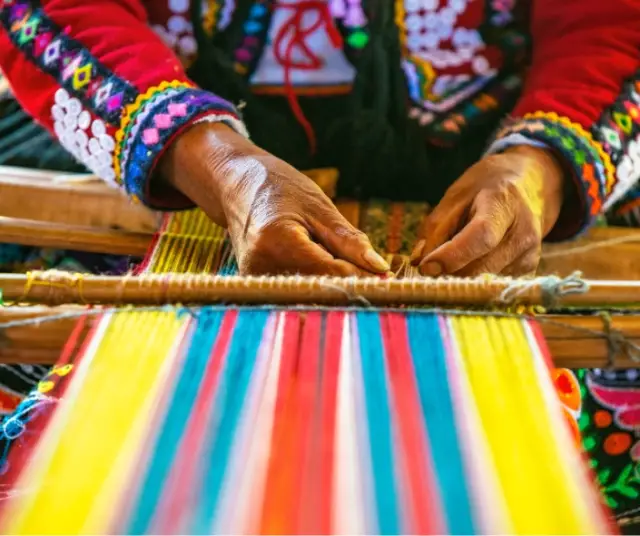Chile, a country rich in geographic and cultural diversity, dedicates a special day to honor and recognize the invaluable contribution of its indigenous peoples. The "National Day of Indigenous Peoples in Chile" is more than a celebration; It is an opportunity to reflect on the rich cultural heritage of these communities and address the challenges that still remain on their path to equality and full recognition.
History and Meaning
June 24, marked by the winter solstice, takes on even more special meaning in Chile when it is designated as the National Day of Indigenous Peoples. This day is not only linked to astronomical events, but also becomes an opportunity to weave the history and traditions of the native peoples present in Chilean territory.
The history of this day is intertwined with centuries of resistance, adaptation and a constant struggle for the recognition of the rights of indigenous peoples. From the times of colonization to the present, these communities have faced monumental challenges, but they have persevered, tenaciously preserving their cultures, languages and ancestral ways of life.
The winter solstice, marking the longest night of the year, symbolizes not only the natural cycle, but also rebirth, resilience and renewal. In this context, the National Day of Indigenous Peoples stands as a tribute to the resilience of these communities, who have faced not only climatic adversities, but also colonial processes that tried, in many cases, to suppress their identities and ways of life.
This day becomes a window to the past, allowing us to reflect on the cultural richness and diversity of indigenous peoples in Chile. Each ethnic group, whether Mapuche, Aymara, Rapa Nui, Quechua, Colla or Diaguita, contributes to the complexity and uniqueness of the national identity. It is a reminder that the history of Chile cannot be fully understood without recognizing the contributions and experiences of these indigenous groups.
The meaning transcends mere commemoration. This day becomes a space for intercultural dialogue, a bridge between the past and the present, between ancient traditions and contemporary realities. It is a call to reflect on the importance of preserving and revitalizing indigenous languages, cultural practices and worldviews that have guided these communities throughout generations.
The Diversity of Indigenous Peoples in Chile
Chile is home to a variety of indigenous peoples, each with their own history, traditions and worldview. Among them are the Mapuche, the Aymara, the Rapa Nui, the Quechua, the Colla, the Diaguita and many others. The linguistic and cultural diversity of these groups enriches national identity and highlights the importance of preserving and valuing the plurality of cultural expressions present in the country.
Despite the efforts made in recent decades to promote inclusion and respect for indigenous peoples in Chile, significant challenges persist. One of the most urgent problems is the defense of territorial rights. Many indigenous communities have experienced the loss of their ancestral lands due to urban expansion, extractive industry and other development projects. Furthermore, the lack of political representation and social discrimination continue to be barriers to the full recognition of indigenous rights. Although policies have been implemented to encourage the participation of indigenous peoples in decision-making, there is still a long way to go to achieve equitable representation at all levels of Chilean society.
Recognition and Development Initiatives
Despite the challenges, various initiatives have been implemented to improve the situation of indigenous peoples in Chile. Educational programs that promote the teaching of indigenous languages in schools, efforts to preserve and revitalize cultural traditions, and projects that seek to strengthen the economy of indigenous communities are just a few examples.
The constitutional recognition of plurinationality and cultural diversity in the new Constitution being drafted in Chile also represents an important step towards protecting the rights of indigenous peoples. However, effective implementation of these policies remains essential to achieving meaningful change.
Importance of Intercultural Education
The Importance of Intercultural Education in Chile goes beyond the transmission of knowledge; It is a commitment to building a society that values and respects the cultural diversity present in the country. In an increasingly interconnected world, where cultural borders are blurred, intercultural education emerges as an essential component to foster mutual understanding and build solid bridges between communities.
Intercultural education stands as a bridge between different worldviews, traditions and ways of life. By incorporating the history, languages, and contributions of indigenous peoples into educational curricula, students are offered a more complete and enriching perspective of Chile's past and present. This not only strengthens the sense of identity of indigenous students, but also raises awareness among the general population about the cultural diversity that makes up the social fabric of the country.
A fundamental element of intercultural education is the promotion of respect and appreciation of differences. By providing students with tools to understand and appreciate the diverse ways of life present in Chile, the foundations are laid for a more inclusive and just society. The acceptance of cultural plurality not only enriches the educational experience, but also contributes to the formation of citizens committed to building a country where each individual feels respected and valued.
The preservation of indigenous languages occupies a central place in intercultural education. Languages are vehicles of knowledge, identity and cultural expression. Encouraging the use and teaching of indigenous languages in education not only contributes to their preservation, but also empowers indigenous communities by ensuring that their forms of communication and expression are recognized and respected.
The National Day of Indigenous Peoples in Chile is not only an opportunity to reflect on the challenges, but also to celebrate the achievements and resilience of these communities. It is a time to highlight the significant contributions of indigenous peoples to the cultural, social and economic wealth of Chile.
Looking ahead, it is crucial to continue working towards building a more inclusive and equitable society. Collaboration between the government, indigenous organizations and society as a whole is essential to address remaining challenges and ensure full respect for the rights of indigenous peoples.
